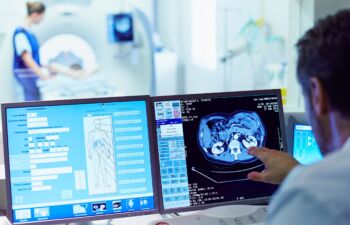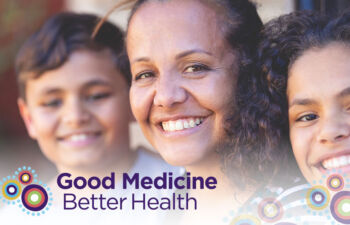Health professional hub
All the hubs available on the NPS MedicineWise Website are presented here.

Analgesic safety and dependence
Evidence suggests that harmful effects of opioids are more likely to happen to people who take opioids for 3 months or more, or who take higher doses of opioids. Find out more.

Medicine and side effects
Medicines can help you feel better, but they may also cause unwanted side effects. Find out more.
- Video: Medicines and side effects: Health professionals talk about what you need to know about taking medicines as you get older
- Anticholinergic burden: the unintended consequences for older people
Health Professionals | Consumers

bDMARDs
Biologics and other specialised medicines have made a significant improvement in the management of chronic diseases like inflammatory arthritis, inflammatory bowel disease and plaque psoriasis. Find out more
- bDMARDs Hub
- Inflammatory arthritis (Rheumatology)
(Rheumatoid arthritis, psoriatic arthritis and axial spondyloarthritis )
Health professionals | Consumers - Inflammatory bowel disease (Gastroenterology)
Health professionals | Consumers - Plaque psoriasis (Dermatology)
Health professionals | Consumers | Resources - Biologics and other specialised medicines

Benzodiazepine dependence: reduce the risk
Benzodiazepines are prescription medicines that are also called sleeping pills or anti-anxiety medicines. Find out more.

Chronic kidney disease: early detection and management
Knowing who is at risk of chronic kidney disease (CKD) enables targeted screening and early diagnosis. Find out more.

Managing changed behaviours within residential aged care facilities
In this series of videos, Professor Lynn Chenoweth from the Centre for Healthy Brain Ageing at the University of New South Wales discusses the theories behind changed behaviours seen in dementia.

Biosimilar medicines
Biosimilar medicines refer to medicines that are highly similar to a reference biological medicine. Find out more.

COVID-19
The coronavirus (COVID-19) situation is evolving, and advice is being regularly updated by the Australian Government and state and territory health departments.

Medical imaging
Evidence-based information on diagnosis of common presentations in primary care, with a focus on the role of medical imaging. Find out more:

Medicines use in remote Australia (RAAHS)
Tools and resources to support the safe and effective provision of medicines in remote communities. Find out more.

Mental health and young people
Increasing numbers of young Australians are reporting psychological distress. Open communication and a comprehensive psychosocial assessment are key for optimising the management of mental health issues for young Australians aged 16–24 years. Find out more.

Good Medicine Better Health
Partnering with Aboriginal health professionals and communities to improve quality use of medicines and medical tests. Find out more.
- Good Medicine Better Health for health professionals

Pain management
Pain interferes with many daily activities. One of the goals of pain management is to reduce the effect of pain on function and quality of life. Find out more.
- Pain management hub
Health Professionals | Consumers
- Acute pain management
- Analgesic safety and dependence
- Chronic pain management
- Communicating about pain
- Information about management of pain for consumers
- Living with pain
- Non-pharmacological and self-directed pain management
- Resources to help live with pain
- Safe use of opioids in acute pain
- Tapering and reducing opioids

NPS MedicineWise QUM Grant-funded activities
This hub contains an overview of NPS MedicineWise programs and activities currently funded by the QUM grant. Find out more.
- QUM Grant-funded activities for health professionals
- Dementia and psychotropic medicines
- Good Medicine, Better Health
- Heart Failure: an active role for GPs and patients
- High risk medicines: Opioid and chronic pain management
- Opioid Analgesic Competency Support Program
- Revisiting pregabalin: Optimising safety in prescribing for neuropathic pain

